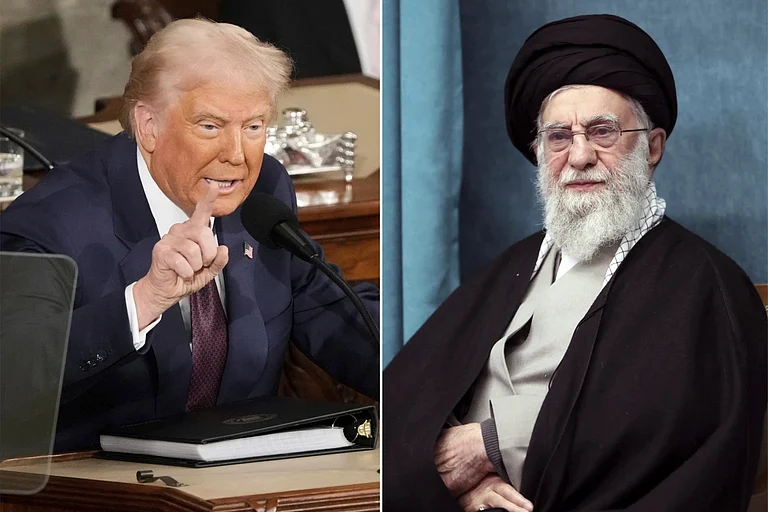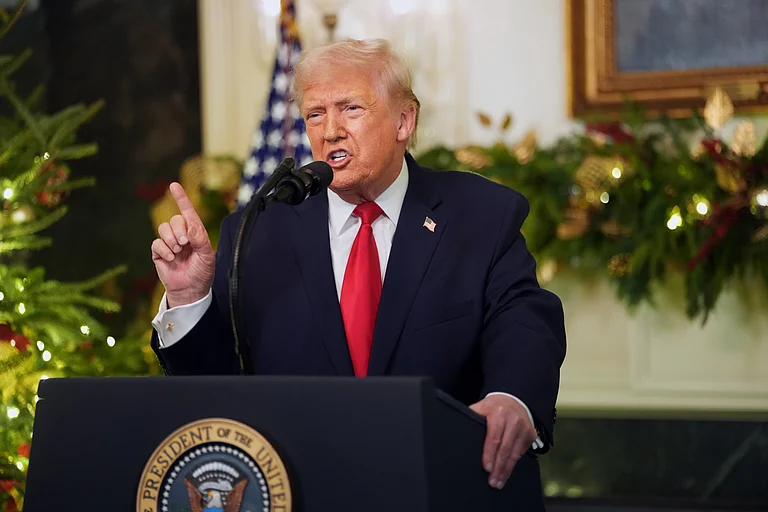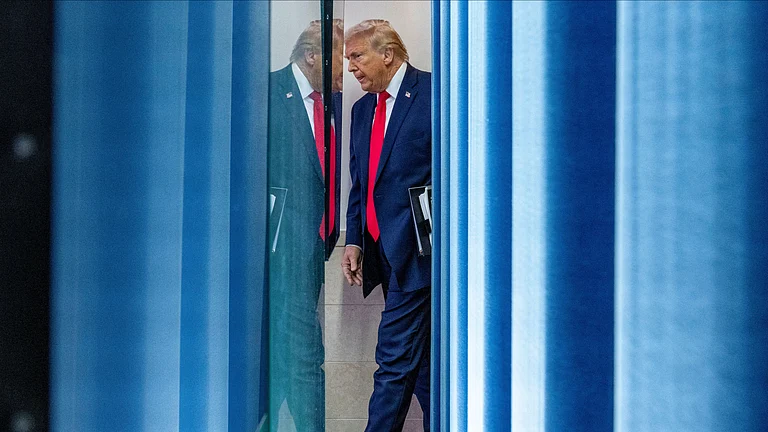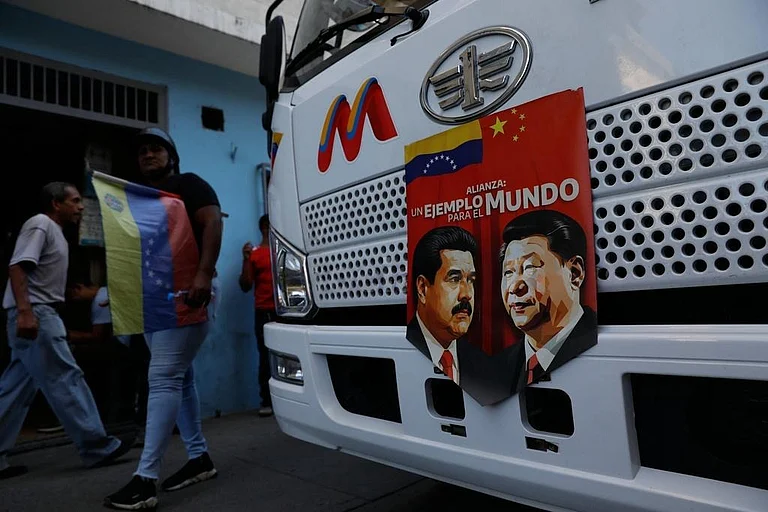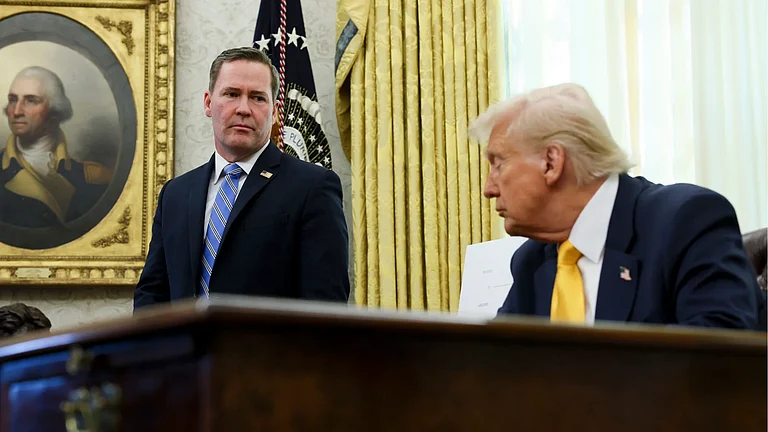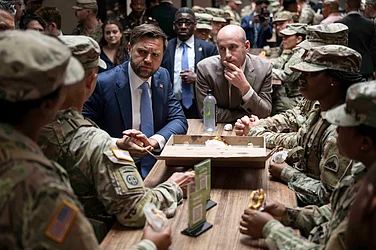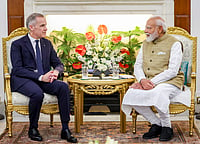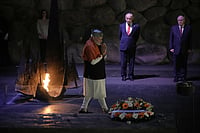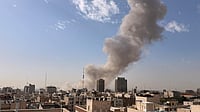
Summary of this article
In October, Trump authorised the CIA to conduct covert operations in Venezuela to overthrow Maduro.
President Trump was briefed earlier in the week on the options for a potential military action, including ground operations inside Venezuela.
The aggressive US stance comes close on the heels of Trump’s approval ratings falling.
Is US President Donald Trump planning to invade Venezuela and oust long-time Leftist leader Nicholas Maduro from power? The US is certainly signalling action. Whether this is just pressure tactics to force Maduro’s hand or Washington is preparing swift military action in Venezuela to declare its dominance in its neighbourhood, is uncertain.
In October, Trump authorised the CIA to conduct covert operations in Venezuela to overthrow Maduro. In a break from tradition, Trump made the announcement publicly.
"The Western Hemisphere is America's neighbourhood — and we will protect it," Secretary of War Pete Hegseth wrote on X. Concern is mounting across South American capitals at the prospect of an American invasion and its consequences.
Ominous Military Build-up
President Trump was briefed earlier in the week on the options for a potential military action, including ground operations inside Venezuela, according to ABC News.
Furthermore, The Washington Post quoted an official stating that US forces are "preparing for possible attack orders" and are awaiting new operational guidelines.
The military buildup is in place. The USS Gerald Ford, the world’s largest aircraft carrier, has moved from West Asia and is now stationed in the Caribbean Sea, ready to get into action at a moment’s notice.
“The USS Gerald R. Ford Carrier Strike Group’s deployment represents a critical step in reinforcing our resolve to protect the security of the Western Hemisphere and the safety of the American homeland,” Admiral Alvin Holsey of the US Navy said in a news release.
The carrier is accompanied by some 60 aircraft, including F-18 fighter jets, according to reports from the US press. Pentagon leaders previously sent eight warships, F-35 fighter jets and at least one nuclear-powered submarine to the region.
In September, the US targeted alleged drug vessels on the high seas. Since then, the US has carried out 20 strikes and killed roughly 80 people, on charges of smuggling drugs to the US.
There is no substantial proof that those killed high were actually members of Venezuelan drug cartels. Many in America, including several Democrats, have questioned the legality of the military attacks on these vessels.
In a rare move, Britain, one of Washington’s closest allies, has stopped sharing some intelligence with the US, over strikes on boats in the Caribbean. The UK, which has major interests in the Caribbean, does not want to be complicit in US military strikes on international waters, which go against international law. Canada, too, has pushed the pause button on intelligence sharing following the illegal US strikes.
The aggressive US stance comes close on the heels of Trump’s approval ratings falling. The Epstein emails released by a Congressional Committee have reignited speculations about Trump’s ties with Epstein, a convicted paedophile, who committed suicide while in prison.
The latest round of elections saw a Democratic surge and confidence that the party could do well in next year’s mid-term elections. A distraction like military action in Venezuela could perhaps take the Epstein files out of the news cycle. Trump is now targeting Epstein’s links with Democrats, including former president Bill Clinton.
Trump and Maduro
Donald Trump’s dislike of Leftist President Maduro is well known. Though there is little evidence to prove it, he insists that the Venezuelan leader has close links with criminal cartels that push deadly drugs to the US. Administration officials frame Trump’s action against Venezuela as an effort to dismantle transnational criminal groups and counter narco-terrorism to defend the homeland.
The Trump administration is keen on stamping its authority in its backyard. Leftist leaders like Maduro and Brazil’s Lula da Silva are often targeted by the President. In Brazil, Trump had openly supported former right-wing President Jair Bolsonaro. What began as a campaign to curb drug trafficking in Venezuela has morphed into a dangerous confrontation. Trump proclaims that he is a man of peace. His MAGA base is opposed to foreign wars involving American troops.
However, in Venezuela, Trump is hoping to imprint his doctrine of peace through strength. Nothing is clear yet.
President Maduro is also preparing for possible US action. Venezuela is an oil-rich nation with an estimated reserve of 300 billion barrels, yet it has been under American sanctions for a long time, and its military equipment is old and no match for US firepower. Maduro has called for peace in the Americas and made conciliatory noises. At the same time, he had mobilised military personnel as well as militias to fight a guerrilla war in case of a full-fledged invasion that forced him out of office.
Regime change has never worked for the US.
It is well known that US attempts at regime change have frequently ended up with disastrous consequences, whether in Afghanistan or in Iraq. US troops were stuck in Afghanistan for 20 years with nothing to show by way of results. The invasion of Iraq led to a bitter civil war and the birth of dangerous terror outfits like ISIS.
There is nervousness and uncertainty all around as fears of an actual invasion grow by the day.




